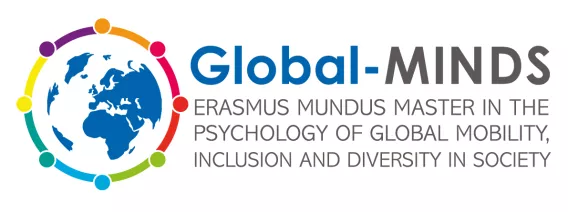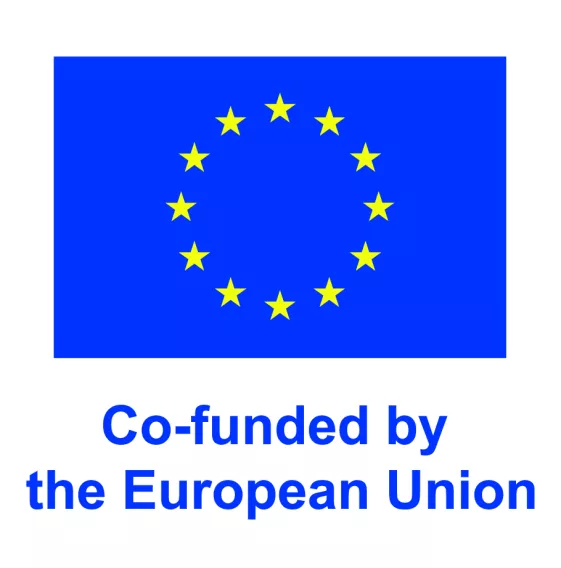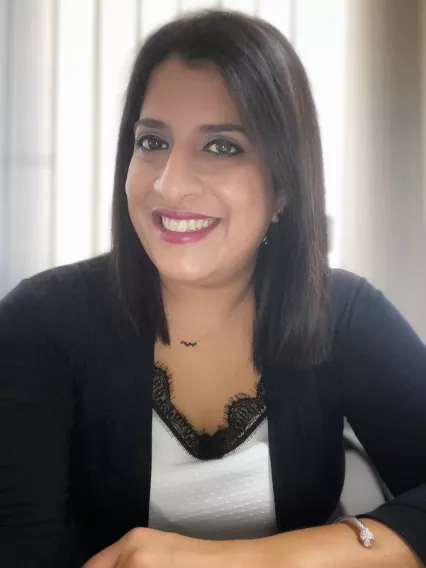Course Details
Brief Description
Applications are no longer being accepted for scholarship places. Applications are currently being accepted for self-funded places only.
Global-MINDS is an Erasmus Mundus Joint Master Program. It provides a comprehensive 2- year study programme delivering high quality international training in social and cultural psychology, specialized in mobility/migration, inclusion and diversity in societies. It is delivered jointly by the University of Limerick, ISCTE – University Institute of Lisbon, the University of Oslo, and SWPS University. Students gain first-hand intercultural experience by attending at least two Universities, completing a 300-hour internship, and writing a research-based thesis to acquire in-depth knowledge on themes of utmost social relevance: diversity and inclusion, global mobility and acculturation, and migrant health. These characteristics render this master program unique world-wide. For the period 2023 until 2028, the Global-MINDS program provides Erasmus Mundus scholarships.


Recent societal challenges such as the global migration crisis, the war in Ukraine, or the rise of political extremism and increased social impacts of climate change call for experts to tackle the issues of mobility (migration and displacement of populations), inclusion and diversity. In Europe and across the globe, well-trained specialists in intergroup relations and cultural diversity are needed to prevent marginalisation, conflict and violence and to promote inclusion, social equality and collaboration. We also need to understand how to support behavioural change so that people can more successfully engage with the global sustainability challenges. Global-MINDS is a timely master programme that responds to these needs by providing a training in psychology and intercultural skills – assets that are indispensable in today’s global knowledge economy and multicultural working environments.
In Year 1, the Global-MINDS program consists of obligatory study periods in at least two universities, depending on the thematic path chosen by the student:
- Path A. Culture & Diversity (ISCTE-IUL & the University of Limerick)
- Path B. Mobility & Society (SWPS University & the University of Oslo)
- Path C. Inclusion & Health (SWPS University & the University of Limerick)
In Year 2, students complete an obligatory internship in one of our partner organizations and deliver a Master’s Thesis in one of the Partner Universities.
Global MINDS students begin their studies either at ISCTE – IUL in Lisbon, Portugal (Path A) or at SWPS University in Warsaw, Poland (Paths B and C). After completing one semester, they move to the University of Limerick in Ireland (Paths A and C) or the University of Oslo in Norway (Path B). At the end of Year 1, all students attend a summer school in cross-cultural methods and interventions. In Year 2, students complete an obligatory internship in one of our partner organizations and deliver a Master’s Thesis in one of the Partner Universities.
Curriculum in Year 1
Path A: Culture and Diversity
Semester 1 (ISCTE – IUL, Portugal)
- Cultural Psychology
- Stereotyping, Prejudice, and Discrimination: Advanced Topics
- Psychology of Intercultural Contact and Communication
- General Elective (e.g. Diversity at Work, Diversity and Intercultural Relations in the School Context)
- Methods Elective (e.g. Advanced Quantitative Data Analysis, Qualitative Data Analysis in Psychology)
Semester 2 (University of Limerick, Ireland)
- Advanced Studies in Political Psychology
- Community Psychology
- General Elective (e.g. Advanced Perspectives in Social Identity Research, Multiculturalism and Political Theory, Inequality and Social Exclusion)
- Methods Elective (e.g. Qualitative Research Methods in Psychology, Advanced Analysis in Psychology)
Summer School: Cross- Cultural Methods and Interventions
Path B: Mobility and Society
Semester 1 (SWPS University, Poland)
- Dynamical Social Psychology
- Psychology of Acculturation and Economic Migration
- Cultural Determinants of Human Behavior
- Statistics and Methodology in Cross-Cultural Perspective
- Intercultural Competence Training
- General Elective (e.g. E-mental health: Combining Psychology and Technology, The Science and Psychotherapy for Working with Sexual Orientation and Gender Diversity)
Semester 2 (University of Oslo, Norway)
- Promoting Change through Social Psychology
- Human Rights, Democracy and Reconstruction after Conflict
- General Elective (e.g. Current Topics in Social Psychology, Social Inequality in the 21st Century: Egalitarian Norway in Comparative Perspective, Judgment and Decision Making and Social Cognition)
- Methods Elective (e.g. Applied Quantitative Methods, Applied Qualitative Methods)
Summer School: Cross- Cultural Methods and Interventions
Path C: Inclusion and Health
Semester 1 (SWPS University, Poland)
- Dynamical Social Psychology
- Psychology of Acculturation and Economic Migration
- Cultural Determinants of Human Behavior
- Statistics and Methodology in Cross-Cultural Perspective
- Intercultural Competence Training
- General Elective (e.g. E-mental health: Combining Psychology and Technology, The Science and Psychotherapy for Working with Sexual Orientation and Gender Diversity)
Semester 2 (University of Limerick, Ireland)
- Advanced Health Psychology
- Migration: Inclusion and Health
- General Elective (e.g. Public Health Interventions, Public Health and Health Systems)
- Methods Elective (e.g. Intro to Participatory Health Research, Public & Patient Involvement Training School)
Summer School: Cross- Cultural Methods and Interventions
A 2.2 honours degree (undergraduate degree, Level 8 - National Qualifications Authority of Ireland) or the overseas equivalent as determined by the Course Board and the guidelines of UL Graduate School Admissions, with a minimum of 100 ECTS or equivalent experience in psychology and research methods. Where candidates are non-native English language speakers, certified demonstrable achievements in a standard English language competency test in line with UL requirements will be necessary.
Candidates will be interviewed as part of the selection process, especially when they apply for the Erasmus Mundus scholarships.
WHAT TO INCLUDE WITH YOUR APPLICATION
- Qualification transcripts and certificates* (undergraduate diploma with transcripts and translation to English if needed– merged into one file)
- A copy of your birth certificate or passport
- Supporting statement(explaining why you are a suitable candidate for the programme, including the justification for the choice of mobility path, and your justification for applying for Erasmus Mundus funding – if applicable)
- CV (in Europass format)
- If your qualifications have been obtained in a country where English is an official language this will suffice
- If this is not available, the following additional documents must be provided:
- English translation of your qualification(s)/transcripts AND
- English language competency certificate
- Please click here for Further Information on English Language Requirements
Guidelines on Completing your Application
- To ensure a speedy assessment of your application, please upload the above documents with your application form – your application cannot be assessed until relevant documentation is uploaded
- Please title appropriately any documents you are uploading with the application form, for example "Supporting Statement", "Undergraduate Transcript", "Postgraduate Transcript", "English Language Certificate" etc.
International students can find more information on eligibility requirements here.
The preferred file format is pdf. Please see here to convert files to pdf and here to merge files into one pdf. All applicants should have their documents in PDFs named:
- LastName_CV_2024
- LastName_Statement_2024 (for the filled in Supporting Statement)
- LastName_Qualifications_2024 (for merged diplomas and transcripts)
- LastName_Identification_2024 (for Passport or Birth Certificates)
- LastName_English_2024 (for proof of English proficiency if needed)
*If the applicant has not completed the 1st cycle degree at the time of application, they must send proof of enrolment, available transcripts, and a declaration of the expected date of completion (original and certified English translation as necessary) from the university that will issue the diploma. In this case, if the applicant is accepted, this will be conditional on the submission of a 1st cycle degree diploma before enrolment.
EU - €4,502 per year
Non-EU - €9,002 per year
ERASMUS MUNDUS SCHOLARSHIPS
Starting with Academic Year 2023, for the next 4 cohorts of students, we offer:
Full scholarships: €1,400 per month for the 2 years (amounting to €33,600)
Partial scholarships: these involve waivers of the tuition fees
For each cohort, we offer 10 full scholarships and 15 partial scholarships.
Self-paying students will also be able to avail of other financial supports, depending on their chosen paths of study. External Funding Possibilities | Global-MINDS
Once registered, students can apply to pay their fees in instalments. A request for a payment plan should be emailed to student.fees.office@ul.ie.
Further information on fees and payment of fees is available from the Student Fees Office website. All fee related queries should be directed to the Student Fees Office (Phone: +353 61 213 007 or email student.fees.office@ul.ie.)
Global MINDS is designed to match the growing social need for initial and advanced training of professionals in all areas of society where specific knowledge regarding the complexity of interactions among people of different cultures, ethnicities and social groups is necessary. Global MINDS graduates find employment opportunities in:
- Business (e.g. in Human Resources, Diversity&Inclusion, Learning&Development, International Marketing)
- The Health Sector
- NGOs
- Development and International Agencies
- Government Agencies
- Intergovernmental Organizations
- Research
- Counselling, Cultural Training, and Cultural Mediation
Please visit out website for news on the program and more information on our Alumni:
You can find us on Social Media:
https://www.linkedin.com/company/global-minds-eu/
Global-MINDS Joint EU Masters (@global_minds_master_program) • Instagram photos and videos
Global-MINDS European Master in Psychology | Facebook

Deepti Dabee - I am currently working as Assistant Permanent Secretary for the Prime Minister’s Office at the Ministry of Social Integration in Mauritius.
I chose this masters because I knew it would equip me to understand multicultural harmonious coexistence much better through theory & practice. But this program proved to be more than just that. It challenged my perspective and I learned so much from all the amazing people I met from various countries- I now have a global family in all corners of the world.
Global MINDS made me stronger as I learnt how to travel across borders during a pandemic and adapt to changing environments every semester. Today I am a more capable global citizen who can contribute in many ways to promote tolerance of differences, appreciation of diversity, and facilitate social inclusion, especially in my multicultural and multilingual island, where I am currently working on policy formulation, government measures and outreach programmes for the most vulnerable groups in my country.